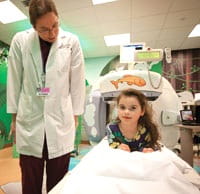- Find a Doctor
-
For Parents
- Before Your Visit
- During Your Visit
- After Your Visit
- More Resources for Parents
Patient & Visitor Resources -
Services
- Locations
-
About Us
- About Childrens
- Find it Fast
- Additional Resources
Find it FastAdditional Resources - MyCHP
ALERT:
As of Wednesday, Feb. 12, it is recommended that patients, visitors, and staff wear a mask when entering UPMC clinical buildings.
- Find a Doctor
- For Parents
-
Services
-
Frequently Searched Services
- Asthma Center
- Brain Care Institute (Neurology & Neurosurgery)
- Cancer
- UPMC Children's Express Care
- Ear, Nose, & Throat (ENT)
- Emergency Medicine
- Endocrinology
- Gastroenterology
- Heart Institute
- Genetic & Genomic Medicine
- Infectious Diseases
- Nephrology
- Newborn Medicine
- Primary Care
- Pulmonary Medicine
- Rheumatology
- Surgery
- Transplant Programs
- See All Services
-
Frequently Searched Services
- Locations
- About Us
- MyCHP
- More Links









 Imaging children poses unique challenges. It can be difficult for children to hold still for an X-ray, or they may be frightened by the noise of a DMSA scan. Children’s pediatric radiologists, working with child life specialists, make their young patients’ experience as safe and pleasant as possible, while obtaining the high-quality images needed to rule out or diagnose vesicoureteral reflux, pyelonephritis, or other renal conditions.
Imaging children poses unique challenges. It can be difficult for children to hold still for an X-ray, or they may be frightened by the noise of a DMSA scan. Children’s pediatric radiologists, working with child life specialists, make their young patients’ experience as safe and pleasant as possible, while obtaining the high-quality images needed to rule out or diagnose vesicoureteral reflux, pyelonephritis, or other renal conditions.